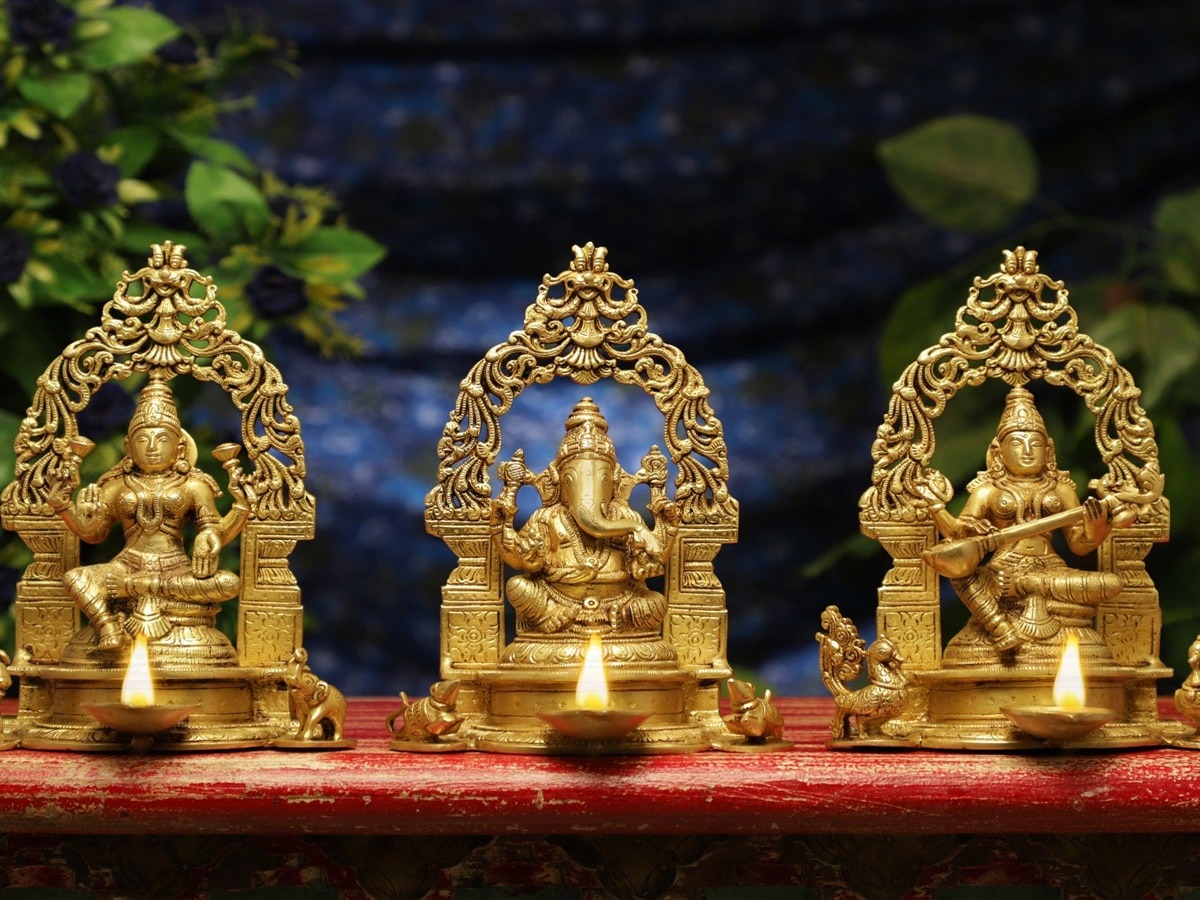 Gold and Silver Statues of Gods and Goddesses in Temples: Vastu Shastra Guidelines for Temple at Home
Gold and Silver Statues of Gods and Goddesses in Temples: Vastu Shastra Guidelines for Temple at Home
Introduction
In the realm of Vastu Shastra, the significance of maintaining certain practices in home temples cannot be overstated. As Diwali, the festival of lights, approaches on November 12, 2023, ensuring cleanliness and proper decoration of home temples becomes a focal point of preparations. This article delves into the essential aspects of Vastu Shastra related to home temples, with a special focus on the importance of gold and silver statues of deities.
1. Diwali Preparation: Cleanliness is Divine
Before delving into the specifics of deity statues, it’s crucial to emphasize the importance of thorough cleaning. Prior to Diwali, devote time to clean the temple area meticulously. Check for any damages, ensuring that the temple is in optimal condition. Diwali is a time for divine celebration, and a well-maintained temple sets the right spiritual tone.
2. Adherence to Vedic Principles
Harmony with Vedic principles is key to Vastu-compliant home temples. Ensure that all elements, including the placement of deities, align with the guidelines provided in the religious scriptures. This includes adherence to specific rules related to the placement and care of godly figurines.
3. Gold and Silver Deities: Pure and Auspicious
Gold and silver are revered as pure metals in Vastu Shastra. The use of these metals for crafting deity statues is considered highly auspicious. With Diwali being a festival symbolizing prosperity, acquiring gold and silver statues of deities can bring blessings of wealth and abundance.
4. Diwali Significance: Buying Gold and Silver
Dhanteras, celebrated just before Diwali, is considered an auspicious day to purchase gold and silver. Acquiring statues of Laxmi and Ganesha made from these metals is believed to bring immense fortune and blessings into the household. It’s an investment in both spirituality and material well-being.
5. Positive Energy and Prosperity
According to Vastu Shastra, placing gold and silver statues of deities in the home temple attracts positive energy. The divine presence in precious metals amplifies the spiritual vibrations, creating an environment conducive to prosperity and well-being.
6. Alternatives: Brass and Copper
Understanding the financial constraints, it’s acceptable to opt for alternatives such as brass or copper deity statues. While not as precious as gold and silver, these metals still hold spiritual significance and contribute positively to the ambiance of the home temple.
7. Clay Statues: A Sacred Choice
For those seeking a more economical yet sacred option, clay statues are highly revered. Crafted from natural materials, these statues symbolize purity and are believed to invite peace and happiness into the home.
8. Importance of Vastu-Compliant Choices
Whether it’s gold, silver, brass, copper, or clay, the paramount factor is adherence to Vastu guidelines. Selecting statues that align with Vastu principles ensures a harmonious energy flow, fostering spiritual growth and prosperity.
9. Positive Aura with Precious Metals
Gold and silver, being precious metals, emit positive vibrations. Placing them in the home temple during Diwali not only adheres to Vastu principles but also enhances the aura of the sacred space, fostering a deep sense of devotion.
10. Balancing Cost and Devotion
While gold and silver are considered the most auspicious, it’s crucial to strike a balance between devotion and financial considerations. Opting for metals like brass or copper doesn’t diminish the spiritual significance; it’s the sincerity and devotion that matter most.
11. Spiritual Ambiance Beyond Metals
The spiritual ambiance of the home temple isn’t solely dependent on the material of the statues. Lighting, incense, and overall aesthetics play a vital role. Combining these elements enhances the overall sacred atmosphere.
12. Festive Offerings and Decor
As Diwali approaches, embellish the home temple with festive decorations. Offerings of flowers, incense, and lamps contribute to the divine aura, creating an environment that resonates with the spirit of the festival.
13. Diwali Puja: Invoking Blessings
During Diwali, the home temple becomes the focal point of puja. Conducting a heartfelt ceremony with devotion and adherence to Vastu principles invites divine blessings, ensuring prosperity and happiness for the household.
14. Vastu Shastra Tips for Diwali Puja
Incorporate specific Vastu tips for Diwali puja, such as facing the east or north while performing rituals. These tips amplify the positive energies invoked during the festival, creating a harmonious atmosphere.
15. Maintaining Sacredness Throughout the Year
The sanctity of the home temple shouldn’t be limited to festivals. Regular cleaning, adherence to Vastu principles, and sincere devotion ensure that the sacred space remains a constant source of positive energy throughout the year.
Conclusion
In conclusion, as Diwali approaches, the meticulous care of the home temple, especially regarding the choice of deity statues, holds immense significance. Whether opting for precious metals or more affordable alternatives, the key lies in sincerity, devotion, and adherence to Vastu principles. May the festival of lights illuminate not just our homes but our hearts with prosperity and spiritual abundance.
 Suspense Crime Sach Ka Dam
Suspense Crime Sach Ka Dam


